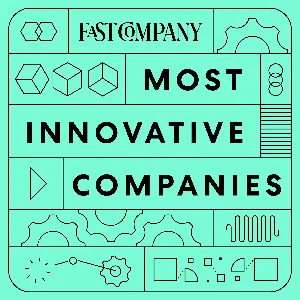
Sam Parr (@TheSamParr) and Shaan Puri (@ShaanVP) sit down with entrepreneur and online marketing guru Neil Patel to talk about his success starting as a blogger to making 9-figures in revenue.
-----
Links:
* Neil Patel
* Photopea
* Do you love MFM and want to see Sam and Shaan's smiling faces? Subscribe to our Youtube channel.
* Want more insights like MFM? Check out Shaan's newsletter.
-----
Show Notes:
(03:00) - Neil's business history
(07:00) - Minority certification
(09:00) - Magic Johnson theory
(24:45) - Monthly burn rate
(38:35) - Neil's philanthropy
(49:05) - 9-figure revenue
(56:10) - Photopea
-----
Past guests on My First Million include Rob Dyrdek, Hasan Minhaj, Balaji Srinivasan, Jake Paul, Dr. Andrew Huberman, Gary Vee, Lance Armstrong, Sophia Amoruso, Ariel Helwani, Ramit Sethi, Stanley Druckenmiller, Peter Diamandis, Dharmesh Shah, Brian Halligan, Marc Lore, Jason Calacanis, Andrew Wilkinson, Julian Shapiro, Kat Cole, Codie Sanchez, Nader Al-Naji, Steph Smith, Trung Phan, Nick Huber, Anthony Pompliano, Ben Askren, Ramon Van Meer, Brianne Kimmel, Andrew Gazdecki, Scott Belsky, Moiz Ali, Dan Held, Elaine Zelby, Michael Saylor, Ryan Begelman, Jack Butcher, Reed Duchscher, Tai Lopez, Harley Finkelstein, Alexa von Tobel, Noah Kagan, Nick Bare, Greg Isenberg, James Altucher, Randy Hetrick and more.
-----
Additional episodes you might enjoy:
• #224 Rob Dyrdek - How Tracking Every Second of His Life Took Rob Drydek from 0 to $405M in Exits
• #209 Gary Vaynerchuk - Why NFTS Are the Future
• #178 Balaji Srinivasan - Balaji on How to Fix the Media, Cloud Cities & Crypto
#169 - How One Man Started 5, Billion Dollar Companies, Dan Gilbert's Empire, & Talking With Warren Buffett
• #218 - Why You Should Take a Think Week Like Bill Gates
• Dave Portnoy vs The World, Extreme Body Monitoring, The Future of Apparel Retail, "How Much is Anthony Pompliano Worth?", and More
• How Mr Beast Got 100M Views in Less Than 4 Days, The $25M Chrome Extension, and More








![Gabby Dizon - Mapping the Metaverse Economy - [Founder’s Field Guide, EP. 49]](https://www.podcastworld.io/podcast-images/invest-like-the-best-with-patrick-o-shaughnessy-3pmywn1q.webp)


